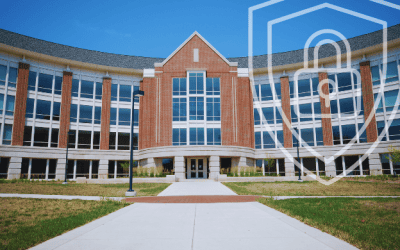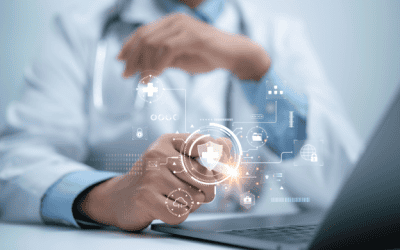In the month of June alone, there were over 300 cyberattacks on the healthcare industry. This statistic highlights the growing concern of cybersecurity professionals who believe that this number will only continue to increase unless healthcare providers take action. In addition to the looming threat of cyberattacks, Internet of Things (IoT) devices heavily rely on secure networks to keep patients healthy. If a network or cloud is compromised for a healthcare provider their business and patients are both at risk. There is also a lack of cybersecurity education within these organizations, leaving employees vulnerable to phishing schemes. These factors have been a concern with healthcare providers for a while and the pandemic has only emphasized these issues. As healthcare organizations begin to recover from the pandemic and other cyberattacks, it’s important that they focus on the following areas to ensure cybersecurity.
IoT Devices
Internet of Things (IoT) devices are utilized in all aspects of healthcare, from life-saving equipment for patients to connected data entry devices for staff. All IoT devices are typically interconnected onto a cloud that stores all of their information and keeps them operating. If hackers gain access to one of these clouds or networks, they also have access to all IoT devices as well. Healthcare providers and patients can experience devastating impacts if these devices are compromised. A strong cybersecurity plan or implementing a SOC-as-a-Service is necessary for providers to continue operating and ensure that their patients remain healthy.
Confidential Information
Healthcare systems have shifted to almost fully virtual platforms, leading to more convenience but a greater risk of being compromised. Data breaches on healthcare providers are becoming increasingly common and placing more stress on patients who trust these systems with their confidential information. Hackers are selling this private patient information on the black-market, leaving patients with decades of damage to restore their privacy. Ensuring that patient information is secure should be one of the top priorities for healthcare providers when caring for individuals. Cybersecurity measures can greatly help secure confidential information and possibly prevent a data breach in the future.
Cybersecurity Understanding
The responsibility of cybersecurity and its operations shouldn’t fall on just one person or team. Everyone involved within a healthcare provider should have knowledge of basic practices and the implications of a cyberattack. HIMSS, states that both workforce and c-suite members should have some level of understanding of cybersecurity. In the event of a phishing scheme or data breach, employees should be able to identify the warning signs. Training sessions and email phishing tests are great ways to engage employees in the cybersecurity conversation. This will allow them to become more familiar with the topic.
Covid-19 and the Future
As healthcare providers managed the overwhelming impacts of Covid-19 on their systems, many important cybersecurity measures that were in place were cut due to smaller budgets. According to Forbes, hospitals made the necessary decision to shift funding from administrative issues like cybersecurity to managing the influx in patients diagnosed with Covid-19. While healthcare providers must put their patients first, it’s important to understand the adverse effects of cybersecurity cutbacks. As hospitals begin to recover from the pandemic, cybersecurity needs to be at the top of their list for improvements. Hackers are always searching for their next target. The healthcare industry is vulnerable right now.
Cybersecurity is one of the keys to an efficient and safe healthcare practice. Without secure devices and systems in place, staff cannot help patients to the best of their ability and the safety of patients is put in jeopardy. While IT teams can lead training sessions on cybersecurity practices and phishing schemes, systems need to be put in place to detect threats. AgileBlue’s Soc-as-a-Service offers healthcare providers 24/7 automated monitoring and detection so that they can operate without worrying about potential cyber threats. We also focus on securing IoT devices and ensure that no endpoint goes undetected in your organization. Request a demo.




